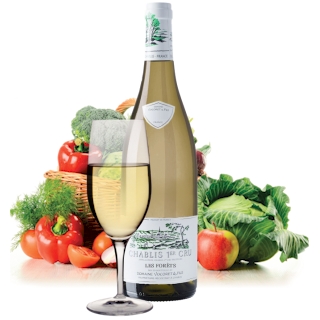


They are assisted by a small, hardworking team who enjoy the diverse and idiosyncratic challenges associated with making wine. The Isolation Ridge vineyard lies on part of a farm where the family have run a wool growing enterprise since 1974. The decision to diversify their farming interests was inspired and informed by a tour of French vineyards Barrie and Judi undertook in 1985 and also by two vintages they worked at Chateau Senejac in Bordeaux. The winemaking philosophies at Frankland Estate reflect these influences as well as the hard earned lessons gained from some 17 vintages in the Frankland River region. Their approach to winemaking is based on the principle that the most significant characteristics of a wine come from the soil and the vineyard environment. They aim to make wines that reflect nature rather than the hand of the winemaker.

This is the basis of Frankland Estate's commitment to sustainable farming and to working the land in accord with the cycles of nature. The team carefully nurtures the health of the soil in the vineyard and only take from the vineyards as much as can be replaced by natural processes. The use of sustainable viticultural practices have won organic certification. It is already evident in the complexity, depth and intensity of flavour in the wines. Like many winemakers Frankland Estate subscribe to the view that great wines are made in the vineyard not the winery. They look to the soils in the vineyards to provide the foundation for healthy vines, intensely flavoured fruit and wines that articulate the distinctive features of the environment in which they are grown.
Frankland River is the coolest and most isolated winegrowing region in Western Australia. Over millions of years the Frankland River has cut through the region’s ancient surface rocks to create gravelloam soils of moderate fertility that are ideal for growing grapes. The river valley also has a crucial influence on the region’s climate.
In winter and spring it sucks cold air down to the Southern Ocean (about 40 kms south of the vineyard) during the night creating air circulation between land and sea that minimises the danger of vine damaging frosts. In summer it funnels cool and humid air north from the ocean moderating the afternoon heat to provide a long, slow ripening period for grapes.

Frankland Estate draws on two different sources of fruit for its wines. Fruit for Isolation Ridge Vineyard is grown in the evocatively named vineyard surrounding the winery. This vineyard is managed by the Frankland Estate team using organic grape growing principles. Fruit for the estate's single vineyard rieslings and for the Rocky Gully range of wines is sourced from other growers in the Frankland River region who share a commitment to sustainable agriculture and high quality fruit.
The Isolation Ridge vineyard sits high on an ironstone ridge with ancient duplex soils of gravel and loam over a clay subsoil. The first vines were planted in 1988 and the vineyard has been progressively expanded to the current 30 hectares. Organic grape growing principles prohibit the use of synthetic fertilisers, pesticides, fungicides and plant growth hormones. Instead, reliance is placed on midrow cultivation, recycled winery waste, animal manures and a range of composting and mulching techniques to increase soil fertility and encourage biodiversity within the vineyard. Fungal diseases are kept under control with sulphur and copper sprays and the resident flock of guinea fowl keep a diligent watch over insect, aphid and mite activity.
The ultimate goal for Frankland Estate, to the extent it can be done, is to allow the wines to make themselves in as natural a process as possible. Hence the entire team tends to avoid titles such as winemakers, prefering to consider themselves as facilitators or interested observers of the means whereby grapes become wine. Similarly, as a small family operated winemaking estate, there is no hierarchy, just two somewhat older and wiser bumps in the middle of what is essentially a flat management structure.
